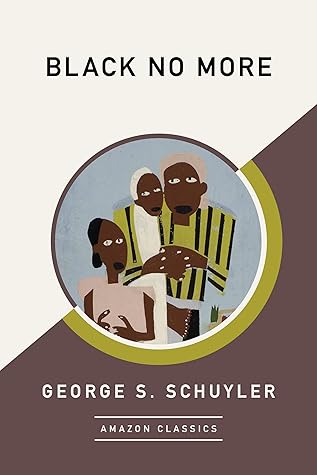More on this book
Community
Kindle Notes & Highlights
THIS BOOK IS DEDICATED TO ALL CAUCASIANS IN THE GREAT REPUBLIC WHO CAN TRACE THEIR ANCESTRY BACK TEN GENERATIONS AND CONFIDENTLY ASSERT THAT THERE ARE NO BLACK LEAVES, TWIGS, LIMBS, OR BRANCHES ON THEIR FAMILY TREES.
My sociology teacher had once said that there were but three ways for the Negro to solve his problem in America,” he gestured with his long slender fingers, “‘To either get out, get white, or get along.’
“There is no such thing as Negro dialect, except in literature and drama. It is a well-known fact among informed persons that a Negro from a given section speaks the same dialect as his white neighbors.
Could one never escape the plagued race problem?
“Well,” she sighed, “I suppose you’re going downtown to live, now. I always said niggers didn’t really have any race pride.”
At last he felt like an American citizen.
He saw in his great discovery the solution to the most annoying problem in American life. Obviously, he reasoned, if there were no Negroes, there could be no Negro problem. Without a Negro problem, Americans could concentrate their attention on something constructive.
that unorganized labor meant cheap labor; that the guarantee of cheap labor was an effective means of luring new industries into the South; that so long as the ignorant white masses could be kept thinking of the menace of the Negro to Caucasian race purity and political control, they would give little thought to labor organization.
Despite his white skin he still possessed the fear of the Klan and kindred organizations possessed by most Negroes.
Unlike Givens, he had no belief in the racial integrity nonsense nor any confidence in the white masses whom he thought were destined to flock to the Knights of Nordica. On the contrary he despised and hated them. He had the average Negro’s justifiable fear of the poor whites and only planned to use them as a stepladder to the real money.
He quickly saw that these people would believe anything that was shouted at them loudly and convincingly enough.
The Negro politicians in the various Black Belts, grown fat and sleek “protecting” vice with the aid of Negro votes which they were able to control by virtue of housing segregation, lectured in vain about black solidarity, race pride, and political emancipation; but nothing stopped the exodus to the white race.
For a mere six thousand dollars a year, the learned doctor wrote scholarly and biting editorials in The Dilemma denouncing the Caucasians whom he secretly admired and lauding the greatness of the Negroes whom he alternately pitied and despised.
Mr. Spelling had for many years been the leading advocate of the strange doctrine that an underpaid Negro worker should go out of his way to patronize a little dingy Negro store instead of going to a cheaper and cleaner chain store, all for the dubious satisfaction of helping Negro merchants grow wealthy.
The Honorable Walter Brybe, who had won his exalted position as Attorney General of the United States because of his long and faithful service helping large corporations to circumvent the federal laws,
The longer and sillier a title, the better the yaps like it.”
The working people were far more interested in what they considered, or were told was, the larger issue of race. It did not matter that they had to send their children into the mills to augment the family wage; that they were always sickly and that their death rate was high. What mattered such little things when the very foundation of civilization, white supremacy, was threatened?
The presence of the Negro as an underclass had also made of Dixie a unique part of the United States.
The deep concern of the Southern Caucasians with chivalry, the protection of white womanhood, the exaggerated development of race pride, and the studied arrogance of even the poorest half-starved white peon, were all due to the presence of the black man.
“Seven years ago, Bunny, seven years ago. How often must I tell you that the people never remember anything?


